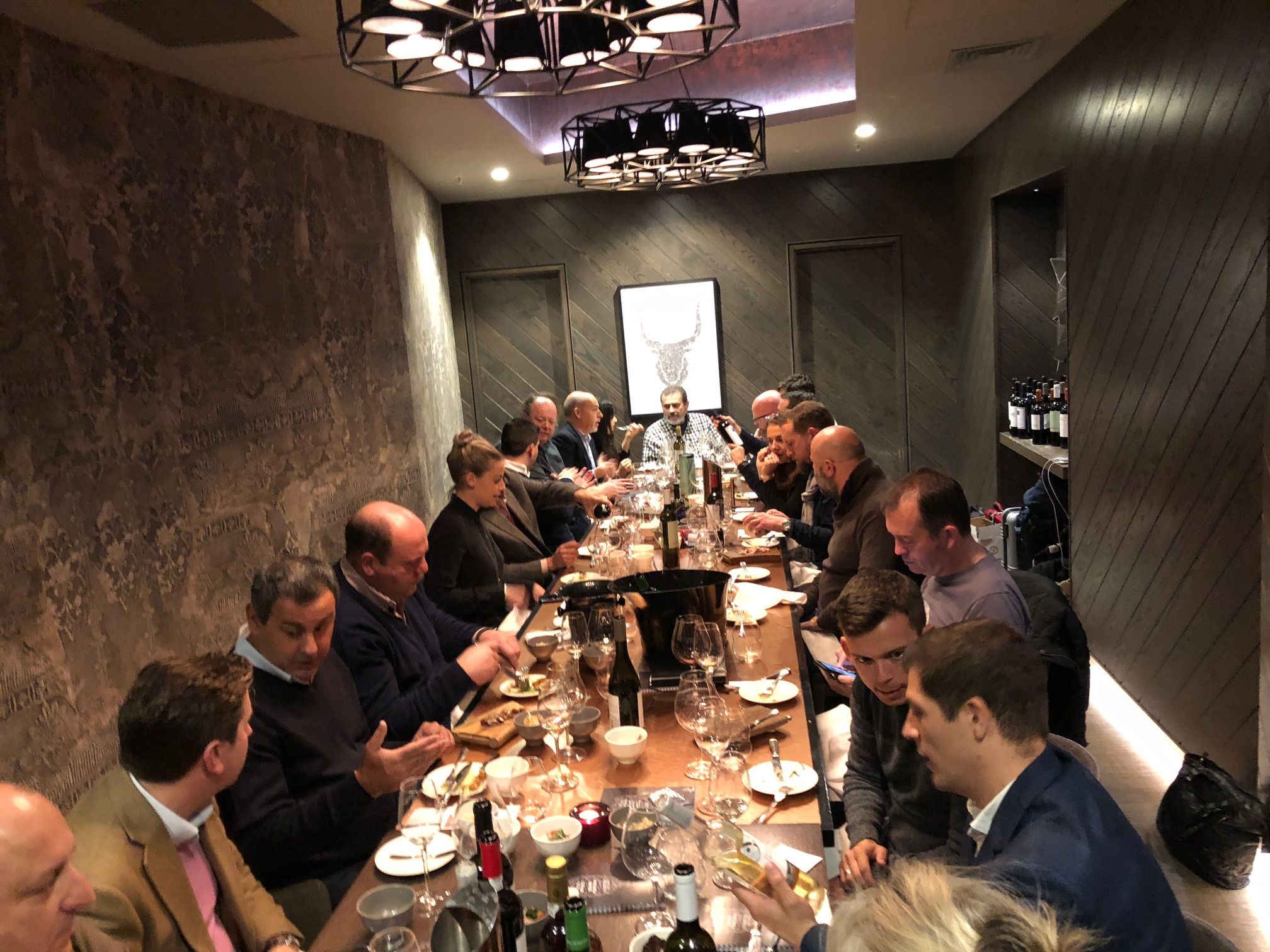What are the key things you would tell a wine producer looking to come to the UK for the first time? That was the challenge we set our panel of trade experts as they looked to offer advice to producers from the Soul Wines project in the Douro Valley.
If there was a world championship for running yourselves down and talking up all the negative aspects about your market, then the UK would be up for winning it every year. Be it the “grossly unfair duty rates”, the “cripplingly high business rates”, a “disengaged consumer” not willing to spend more than £5 on a bottle of wine and trade wine buyers “who are only interested in price promotions and discounting”. In fact it is a wonder anyone bothers to try and sell their wine here at all.
Yet they do. And then some. If you look at the UK through a pair of rose tinted glasses then wine is the country’s favourite alcoholic drink, ahead of beers and spirits, it’s still one of the most influential markets in the world and a top five, if not top three, market for most major wine producing countries. The old adage that if a wine producer can make it in the UK, they can make it anywhere in the world is as accurate today as it has ever been.
It should therefore not be a surprise to find groups of winemakers and producers still keen on finding the best way for them to sell their wines in the UK.
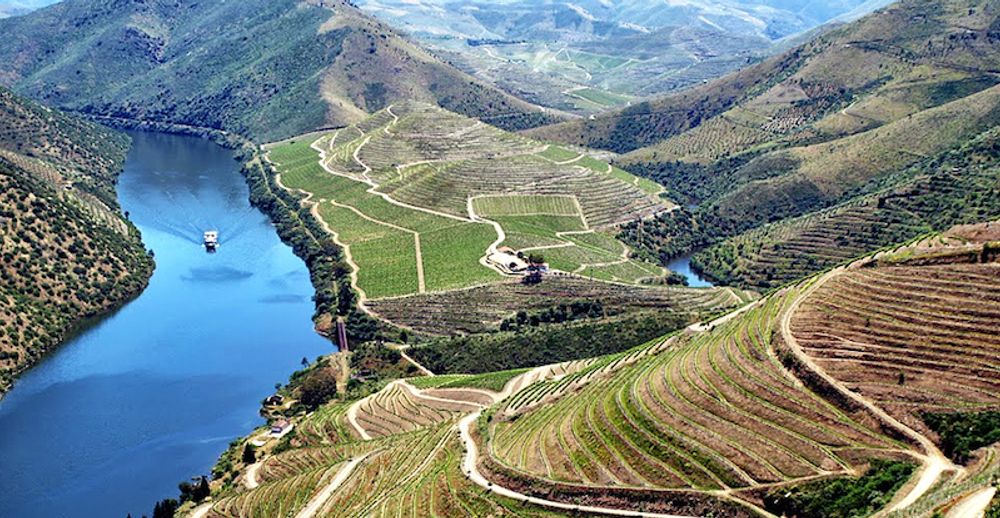
The challenge for the Soul Wines producers in the Douro Valley is knowing the best way of bringing their wines to the UK
Like the Soul Wines project of Portuguese producers from the Douro Valley who were in the UK last month to host different events, and a dedicated trade tasting, to introduce their wines to UK buyers as well as look to build partnerships and hopefully distribution in this much sought after market. Rather than work on their own, Soul Wines allows the producers to come together and share their experiences and collective strength to make a bigger, better and more productive image of the Douro wine region.
As well as its dedicated trade tasting the Soul Wines group also teamed up with The Buyer to host a business roundtable and tasting where the focus was not just on showcasing their wines, but the opportunity for the producers to hear from leading trade experts operating in different channels and sectors of the UK wine industry about how they would approach the UK market.
The panel line up included:
- John Graves, Bibendum’s on-trade wine director
- Peter McCombie MW, restaurant and wine consultant
- Alistair Morrell, former supermarket buyer turned management and wine consultant with his own agency, The Wine Inspector.
- Harry Hunt, a British winemaker making wine in Andulucia in Spain as part of his negociant business, Tierra Hermosa. He is also one of three UK winemakers and distributors, The Three Amigos, that are offering wines to UK buyers from all over Spain.
- Lenart Cernelic, wine manager at M Restaurants Victoria.
- Ben Appleton, business development director for specialist Portuguese wine importers, Portuguese Story.
- Jamie Goode and wine critic and writer.
Each were able to offer their own perspective and experience of working in different sectors and channels of the UK trade. That was one of the first key points that Alistair Morrell wanted to get across. It is not possible to look at the UK as just one market, he stressed. As a mature wine consuming country it has developed a number of new routes to market, some separate, some overlapping, so it is nigh on impossible to have an all encompassing approach. The key, he said, is to do your homework.
Market first approach
As a winemaker Harry Hunt could empathise 100% with the challenges facing the Douro producers. For him the story has to start with the wine, but not necessarily as they might have expected. Hunt says it is important to listen to the market and let the demands, taste profiles and needs of the consumer dictate what wines you make, rather than base it all on your own land, soils and terroir. Yes, you have to make wine that is true to the region it is from, but it also has to be relevant to the consumer you want to drink it, he stressed.
He also did not pull his punches. “The UK is an extremely challenging market. There is enormous amount of competition, and it’s very price driven. You have to be creative and innovative, particularly in terms of packaging, design and NPD.”
The key, for Hunt, “is to get into the mind of the buyer”. If you can understand the challenges, the pressures and the issues they are facing and can go to them with solutions and ideas that will help them meet those challenges, then that is how they will listen to what you have to say.
Aware, for example, that he could only ever go to a UK buyer with wines from one region of Spain at particular price points, he realised to have more of a chance of a seat at the table he needed to collaborate to grow. So he has teamed up with two fellow British winemakers who are also making wine in different regions of Spain to create The Three Amigos that can source wine and offer projects, at all price points and different volumes, from all areas of the country. “We are so much strong together,” he said.
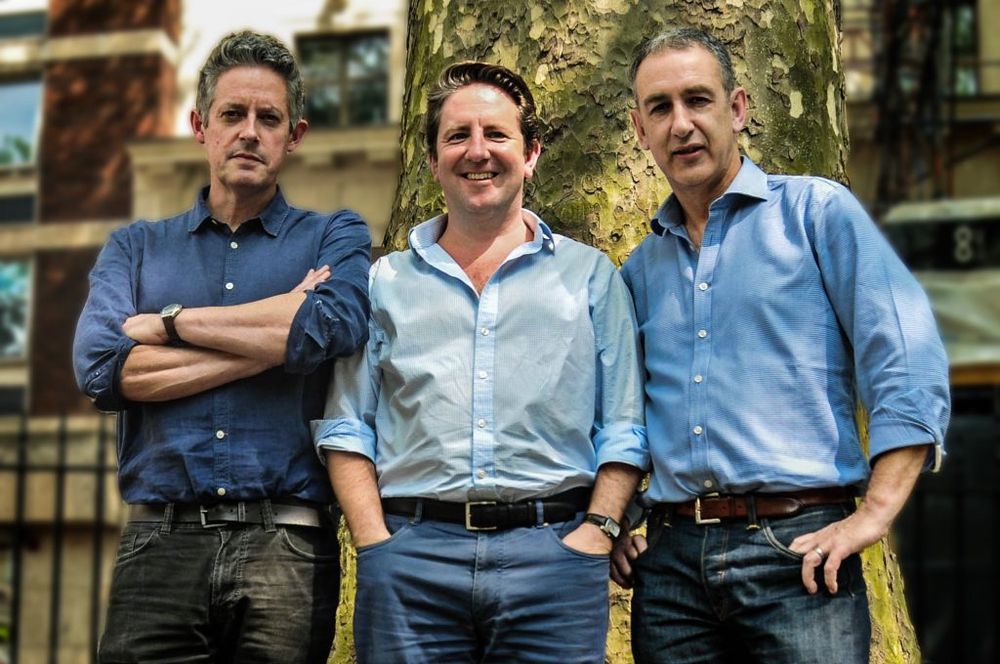
The Three Amigos are the combined strength of three UK winemakers and operators in Spain that can help source and bring any volume of wine to the UK at any given price
Hunt has learnt during only his six years of making and selling wine that it is not just about the quality of your wine, but all the solutions you can offer when it comes to logistics, distribution and making the most effective use of your supply chain. It’s why with The Three Amigos it makes sure it has stock both easily available in the UK, but also from one central facility in Spain.
“We are trying to be as flexible as we can to help UK buyers with their challenges in this market,” he said. “We are looking to offer solutions as well as just wine. That’s why it is important you understand the dynamics of the market, only then can you come up with options for buyers.”
As well as having pre-made wine to sell with a fixed label, it is important you go to UK buyers with an open mindset and a willingness to go away and make wine to a brief, that matches their needs and what their UK customers will drink, he said.
“You need to ask buyers what they need, what are they missing out on and then go out and try and create it for them,” he added.
It’s because the UK is so demanding that makes it such an important market to be in, stressed Hunt. He certainly agreed that having listings in the UK helps with your profile elsewhere in the world and “opens up doors to other markets”.
The pricing factor
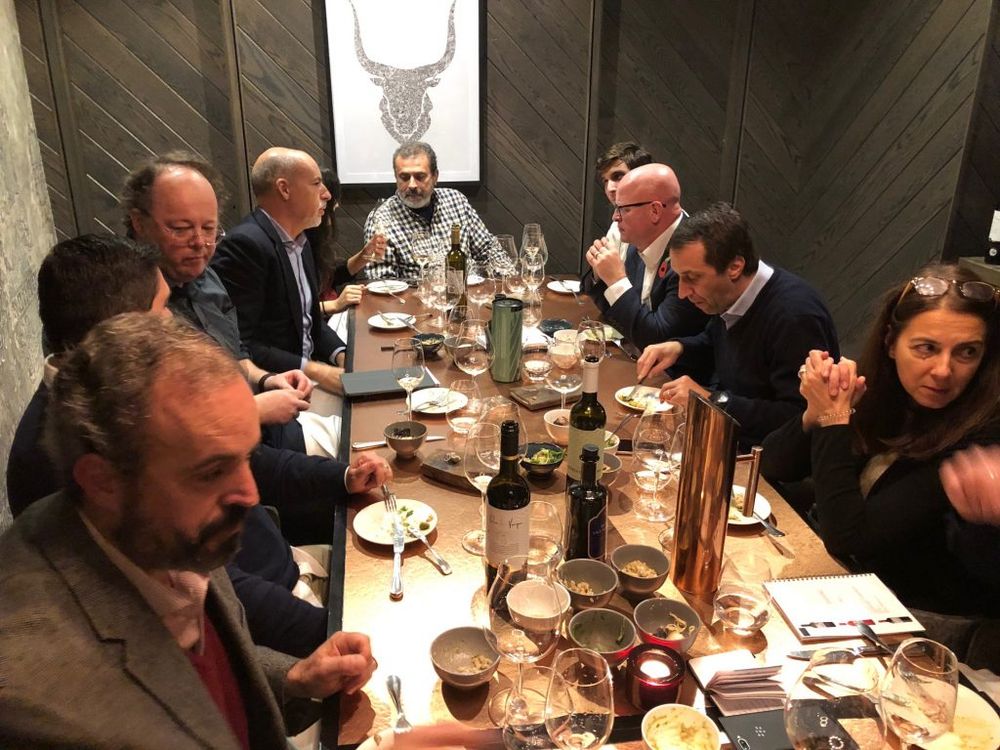
It was a great opportunity for the Portuguese producers to get direct advice from leading UK trade figures
Ultimately all things do boil down to price and for any wine to have a fighting chance in the UK market it has to offer the right quality and value for money. That does not mean it has to be cheap, it just has to meet the criteria and expectations of the particular aspect of the wine industry where you are looking to sell your wine.
A supermarket £5 wine will have very different sets of rules and influences to follow than a premium independent producer looking to sell their wine in a restaurant at closer to £50 a bottle.
But they will both need to offer excellent value for money at those price points, said Peter McCombie.
If you are looking to target the mid to premium restaurant, pub and bar sector then you will need to have your wines priced between £25 to £50, he added. “Yes, there are wines at £100 a bottle or more, but they don’t sell a great deal,” he stressed.
The good news for Portugal and the Douro Valley, particular, is that they both fit the mould for what sommeliers and buyers are looking for. “They are looking for new things, indigenous grape varieties, the way the wine is made. There are certainly warm feelings out there for Portugal, but they probably don’t know much about it,” said McCombie.
One of the biggest lessons an overseas producer can learn about the UK is the London factor, he added. “London is not the UK. It is completely different to what is going on elsewhere in the country.”
Hitting margins
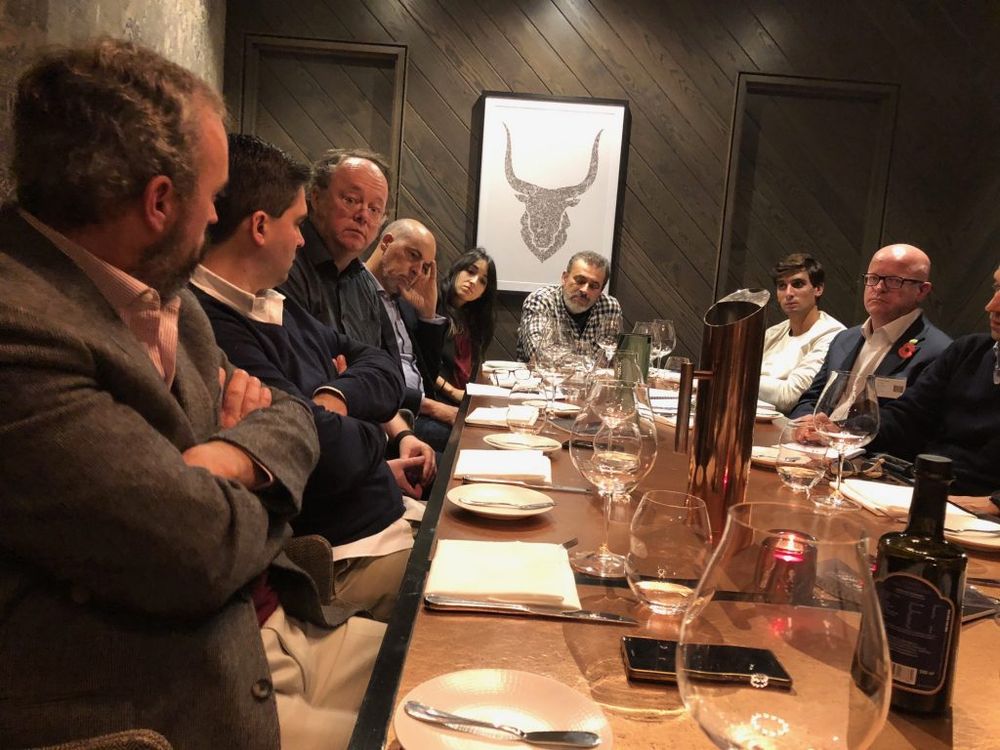
Bibendum’s John Graves said there was a real interest in wines from the Douro Valley
Another key factor about the UK on-trade market is the demand for margins. With profits being squeezed all over the sector – down by 80% in the last year – restaurants and bars are looking at which parts of the business they can squeeze to bring in more margin. It’s why it is quite common now in London to see multiples of five on most wines on a list as operators look to make a gross profit of 80% plus VAT. “It’s become a fact of life,” says McCombie. “I have never seen that margin ratio below 65%. Some will look to get money in the bank and get a cash margin. But it can make look wine very expensive on alist.”
John Graves said the 80% margin “did not leave a lot of room” for distributors like it to “play in”. But there is that squeeze taking place across the on-trade and wine is being seen as the area to drive up margin.
He urged the producers to look at the independent and quality pub group sector as good routes into the market, as they are looking for quality wines and are prepared to pay a price for them.
Hunt said wines he was selling at €2 ex-cellars would be available in the UK for £10 to £12.
So whatever a producer’s ex cellars or trade price, they must expect to see it at a much higher premium in the UK.
There will also be an enormous amount of staff churn in the accounts you work with, so you will have to be constantly having to re-focus their efforts and ensure your wine is front of mind. And still being listed.
It’s why it is vital any producer looking to succeed in the UK market has a good strong presence here, said McCombie. “You have to be visible.”
Hunt added: “Don’t just think getting a listing is the end of it. It’s just the beginning. We spend a lot of time in the UK doing exactly that, training staff and creating ambassadors for your wines here.”
Alistair Morrell could not agree more: “It’s all about relationships, relationships, relationships.”
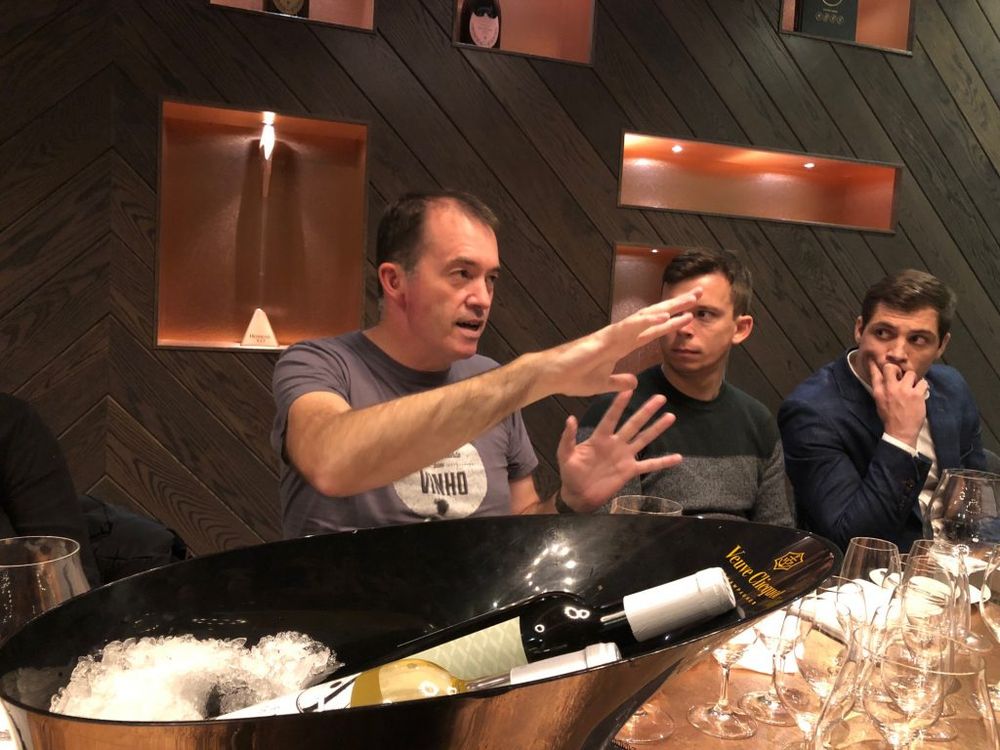
Wine critic and writer Jamie Goode says it is important to choose the right channel and importer for your wines
However hard it is to get a listing don’t be tempted to sell the same wine in different channels. It simply does not wash. You can use the same wine with a different label and brand name, but not the same, said Hunt.
That channel management is something that consumers understand and expect, said Lenart Cernelic at M Restaurant. He said customers both understood and expected to pay a different price for a wine in its retail shop as they would do in the restaurant. “We’re quite unique in that we offer both on and off-trades.”
Cernelic disagreed that price is always the number one factor for buyers. “My first step is always quality. Yes, the quality to price ratio has to be there as well, but you need to have the quality.”
Role of specialists
The panel was quite understandably split on the respective benefits of big and small distributors and general players versus the specialists.
McCombie says the trend amongst premium restaurants is to work with a smaller group of five or six suppliers from which they can get the majority of the wines they need.
Clearly for Ben Appleton at Portuguese Story the specialist route was very much the way he would recommend going. If a buyer is serious about a particular region or country and what they can offer then surely it makes sense to work with a specialist player, he said.
Portuguese Story worked hard to find interesting and “esoteric” wines from all areas of Portugal. The kinds of wines that wine bars such as Sager + Wilde are looking to list that offer their customers a broader selection of Portuguese wines. Its why it works with a lot of winemakers that are working in different ways, experimenting with amphorae, bringing back old techniques and working with old vines. “We want to work with good quality wine, that just happens to come from Portugal,” he said.
It was certainly “riding on the coat tails” of other specialist importers that have made a name for themselves in recent years.
McCombie said he “liked the idea of a specialist” but it can be hard for a restaurant to justify working across a number of different suppliers. That said there are plenty of examples of good Portuguese specialists, like Raymond Reynolds and Clark Foyster, that have built up a good reputation and also have a wide enough selection of wines to choose from.
The situation was even more acute in the multiple grocery sector, said Morrell. Here the pressure is on to only work with a small group of suppliers, which again is why relationships are so crucial.
“A retailer will want to work with a supplier with the right portfolio, a supplier that they can grow their business with,” he explained. “They will want to create a business plan that you can implement together and stick to.”
Customer first
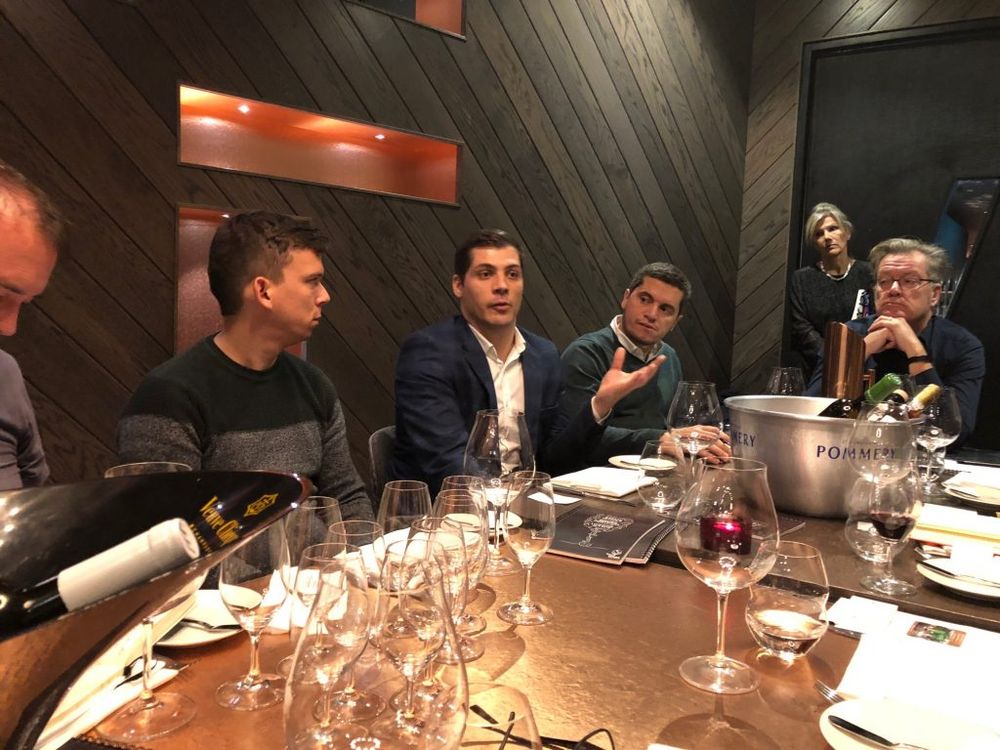
Lenart Cernelic at M Restaurant said there was an understanding amongst customers that they have to pay more in a restaurant than in a shop for the same wine
Graves at Bibendum said it was looking to work with the kind of producers that its “customers are interested in buying”. It really is as simple as that and working with wines that it can sell at a good price to a restaurant or on-trade customer at all pricing levels. If a producer can bring more to the table like a ready made following then that can only add to the opportunity.
“Restaurants talk to other restaurants and often it’s word of mouth,” he added. “We are always looking to build that loyalty amongst our customers.”
Importers are also becoming known for the styles of wine that they are sourcing, said Jamie Goode. It might mean they are specialist in natural or minimum intervention wines or wines with a sense of place. “It’s not all just price sensitive any more,” he added.
Finding the right partner, importer or supplier is arguably more important than any listing you get. McCombie urged the producers to do as much homework about the quality and pedigree of any importer they might want to work with. “There are a lot of people out there who want to supply and import wine. So there are lots of opportunities, but have you done your channel strategy to work out where your wines should be sold. You must do your homework. You have to take it that seriously.”
Equally be cautious about putting all your eggs in one basket, said Morrell. It might be tempting to take a listing that will account for large volumes, but what happens to your business if that listing is pulled.
McCombie said the hardest challenge is not saying yes to the first importer that wants to take on your wines. “Be very careful who you work with. This needs to be for the long term and so often producers and importers are mismatched. So agree what your collective goals are.”
“It’s like dating,” added Goode.
The story
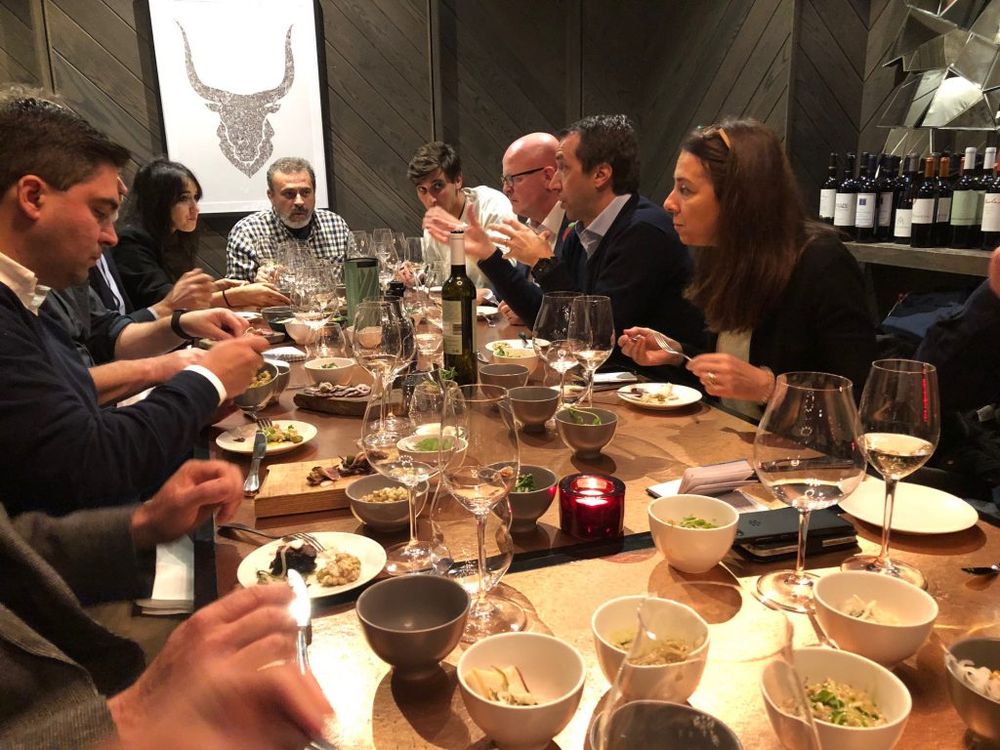
The debate was also an opportunity to taste the Douro wines and pair them with food prepared at M Victoria
McCombie also urged the producers to look closely at what story they were telling about their winery and the wines. He said too many producers think simply having the history about their family on their website is enough to sell their wines.
“It might be interesting to you but does it pass the ‘who cares’ test? What is it that people who are looking at your website might be interested in. Focus on that. Those are the stories you should be telling,” he said.
This is where hiring a consultant that can take a hard, objective view of your business could be very helpful, said Goode. “It’s important to be able to take a step back and look at your business as an outsider would. It might be hard or even brutal to hear what they say, but it will help you understand what might work.” McCombie agreed: “Get people to ask you the hard questions.”
Part of that ‘story telling’ is the actual style of the wine, said Graves. It is increasingly looking for wines that have acidity, and good freshness to them.
Ultimately it comes down to knowing who you are and why your story is so more interesting than anyone else’s.
“What makes you unique, what identifies you as a business, that’s what you have to work out,” says Morrell. “Just saying you have an amazing wine is not enough.”
The Soul Wines Project
Soul Wines is an umbrella brand concept which brings together many producers, almost all coming from traditional Douro families. The project is co-financed with Portugal 2020 and promoted by NERVIR – Associação Empresarial – a Douro Valley business association, which over the years has developed activities in several foreign markets to promote the Douro and Port wines. The Soul Wine producers have for generations produced some of the best grapes and wines in the region, which were then sold to port wine exporting companies. It was only in 1986 that these producers were allowed to age and market Port Wine from the Douro Region themselves. Their wines are already on the domestic and international markets. The purpose of the project is to help them gain more visibility and traction.The producers choose the markets in which they would like to participate, according to their needs and strategies. Thus, not all producers are present in all markets where Soul Wines promotions take place.
Soul Wines Producers that took part in The Buyer debate
• Quinta dos Lagares
• Alves de Sousa
• PNC, Parceiros na Criação
• Odisseia
• Adega de Sabrosa – Vinhos Fernãode Magalhães
• Quinta do Mourão
• Quinta das Lamelas
• Vale da Veiga
• D’Origem
• Monte São Sebastião
• Coimbra de Mattos
• Vinhos de Favaios
• Bulas
- Thanks to M Victoria for hosting the event and creating bespoke dishes to pair with the Douro wines.
